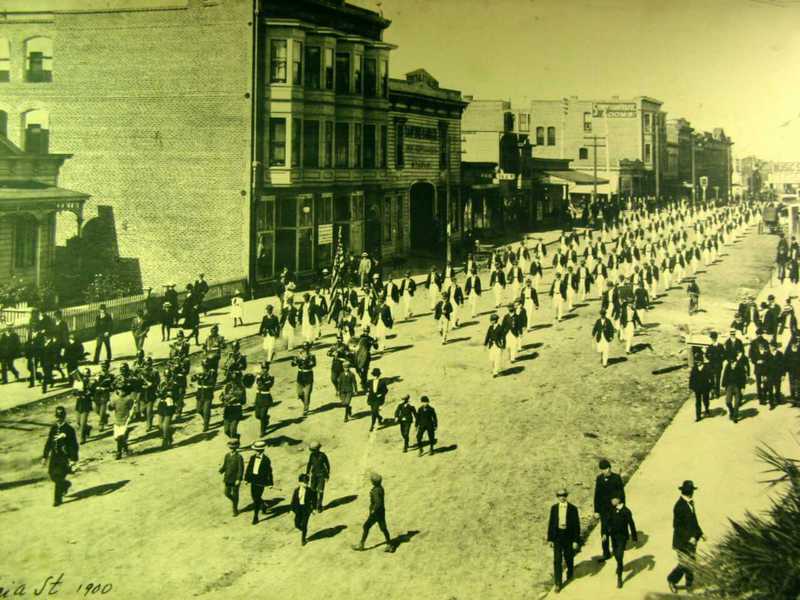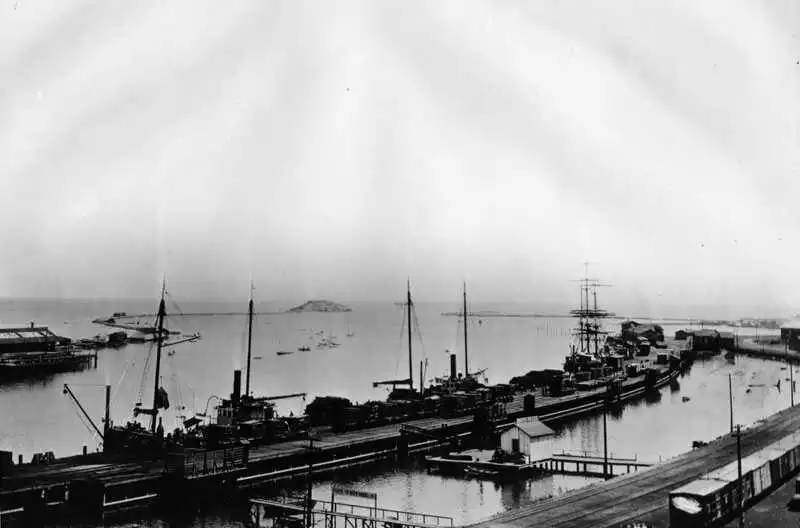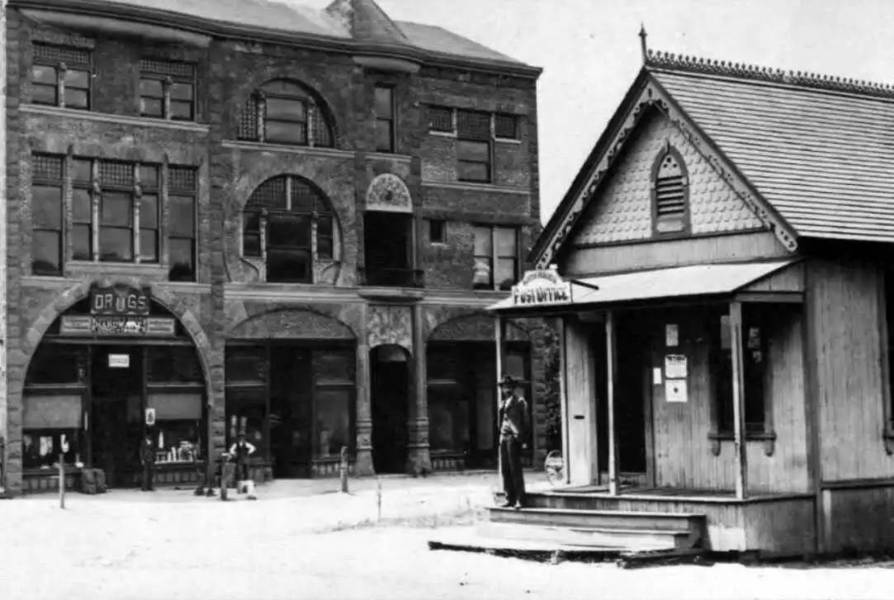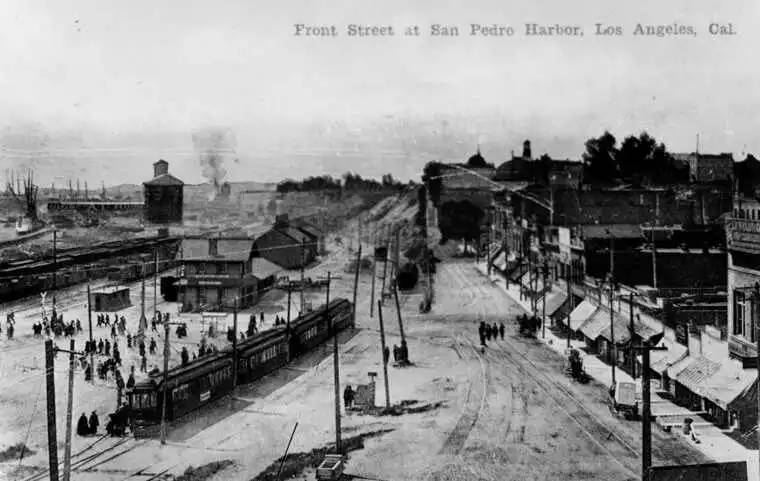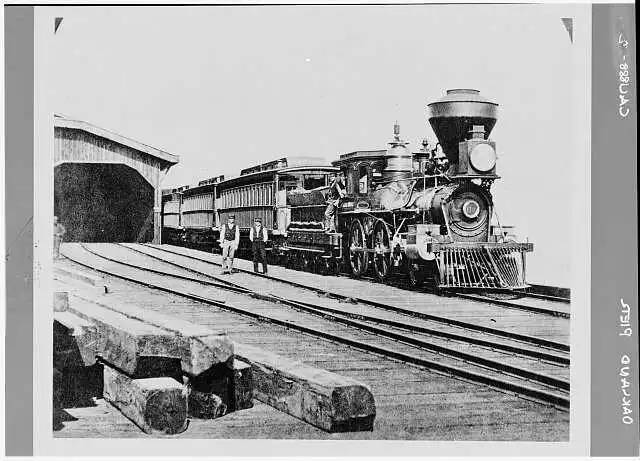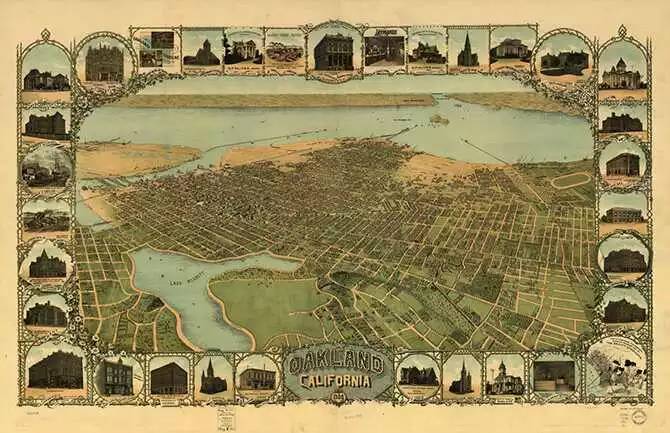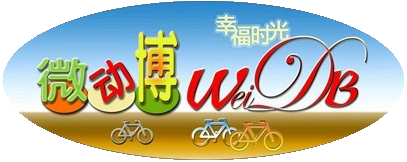■转文《 Horace Walpole Carpentier ☆丁龙☆哥伦比亚大学 》
舒明-2506 06/27 13767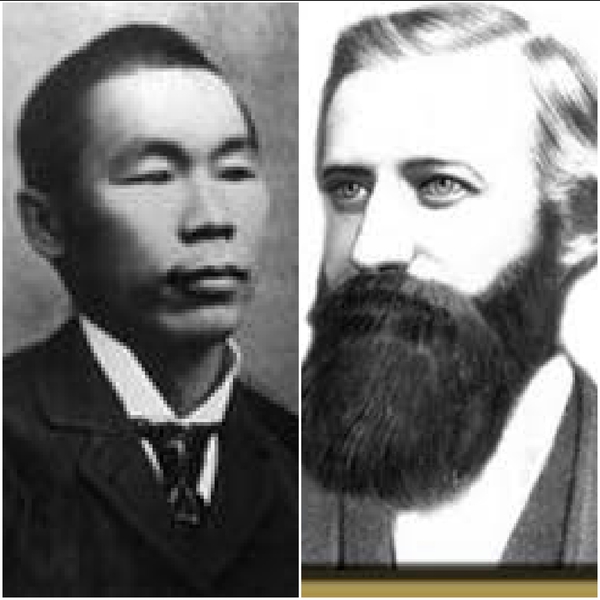
18240707 是 Carpentier 的出生日 。
好巧 , 191年后 , [ 荷塘●话剧社 ] 20150707 , 第三次朗诵讲述他和丁龙和哥伦比亚大学汉学系的故事 !
20150627 8:00am
■刚刚读了这篇文章,的确是个好题材,为丁龙的大义,忠诚,慷慨,以及不忘本的精神感动,更为他的主人点赞!我决定参与这个话剧的所有工作,在我力所能及的情况下!
●不愧是无私欲则明刚的刚姐 !
我们一起努力 !
● 刚姐无私欲则明刚 , 方华无私需故不懦 。
● 选得这题材 , 又受到您和众多朋友的支持 ~ 是因为故事的中美两主人公 , 太感动和启发人们了 !
■ 这个题材太感人了,无论是华人还是美国人,都会为自己的民族英雄感动的!
●刚姐让我感动 , 但不意外 。因为我懂得您的心愿 ! 谢谢您也懂得我 !
■你太棒了!原以为你是因为爱好玩玩而已,我因为孩子小也没有太多时间陪您玩,还挺过意不去,不过这个题材太好了,再没时间也要抽点时间支持您![奋斗][奋斗][奋斗]
●办话剧社 , 主意早有 , 一直等待有位阳刚之气 , 华才德高的男子汉挑头 。
●有次与朋友午餐时 , 听了 TA 的故事 , 大受启发 ~ 就不等了 !
●很好的故事 , 为前辈华人骄傲 ! 我们准备把他的故事 , 以话剧方式 , 表演给大家 !
●请您将故事转发到您的朋友圈或群聊里 , 为之感动的作家 , 编剧们 , 也许会看到哦 !
■我看过了,很好的题材。非常有教育意义,因为今天在美的华人尤其是富豪级的人估计也不少,但能如此慷慨去回馈社会受益后人的太少太少啦!我们需要榜样需要正能量需要今世的丁龙呀。
●还有人文人性的尊贵 , 是没有主仆贵贱的 !
■@方华 读了丁龙的故事,一位在那样的时代处在那样卑微地位的华人,却以他不凡的人格心胸感染了异乡主人,协助他成就了旷世梦想和永久的传奇。感谢这么好的分享[玫瑰][玫瑰][玫瑰]
■@方华 很久前就看到有关丁龙的故事。一直想如果拍电影李安导演是个绝好的人选。他特别擅长表达这种人文情感的题材,特别是在刻画小人物细腻丰富的精神世界非常出彩。希望有一天能看到[愉快]
●@Sherry Gao .. 是啊 ! 盼望李安导演能选中这个故事 ! 咱们这万能的群 , 也许有朋友能联系上我们共同钦佩的李安大导演 !
●在电影出来之前 , 我们希望用穿梭和穿越的语言朗诵方式 , 讲出这个久远的故事 , 触动现如今的岁月和人们的神经和心灵 。
●我也很累 ~ 转私聊的话剧互动到群里 。
●今天是最后一次迁就了
■感谢你 这两天搬家,正在努力消化疲劳 ,
■题材的确正能量,关键编写如何抓观众,应该有些看点需要做重点突出 , 语言是一个大看点 。
●对呀 , 话剧么 ! 您这么专业精致 , 就在群里直接说吧 ~ 虽没见面 , 我们都是对您尊敬又盼望的 ! 等我整理一下思路 感觉可以落实到剧本的具体素材还是不太够 丁龙本人的形象比较模糊 他的身世还能找到更接地气的材料吗?
■丁龙的故事是拍电影的好题材!
●我们一起来找编剧 , 找导演吧 !
■我读了,很感人!题材不错
20150627
●
http://www.weidb.com/p20237&g=3014&tag=latest&edit=true?from=timeline&isappinstalled=0
●推荐一个好电影和话剧题材
■我想首先收集所有的资料, 仔细阅读后, 可以在一起聊聊构思, 在谈编剧,导演的事。
●我们一起学习 , 实践 , 成长 !
丁龙的故事
叙事诗~序曲
一百多年前的美国时空里 ,
有位中国仆人丁龙 ,
他人品高尚, 勤恳忠实, 智慧心细 ,
主人Carpentier对他爱待敬重, 视为知己。
挽留即将退休的丁龙
他言词恳切, 诚心全力
随未如愿, 却给了丁龙一个天大的诺许
"Mr. DING , 请你提出一个没有限制的愿望,
我一定帮你实现 ,
即便用尽我的全部心力和财力 "
丁龙感动 , 于是提出了一个久藏心地的希冀
" 主人 , 我愿将我的终生积蓄委托给您 ,
捐给美国一所知名大学,
创办一个研究与弘扬华夏文化的汉学系 !
主人敬佩至极 , 从此的岁月啊~~
丁龙•Carpentier•哥伦比亚大学汉学系 ,
这三颗亘古第一的璀璨明星 ,
就永远永远地 ,
绚丽在宇宙人文的阳光•明月•群星里 ! !
● 欢迎新朋友 !
● 请问您扫描入群时 , 读过建立 [ 荷塘●话剧社 ] 的链接吗 ?
● 请您自我介绍一下 /:rose/:share
●新老成员的 [ 荷塘●话剧社 ]第三次聚会通知 。
●时间 , 20150707 (每月的第一个周二上午10:00am )
●地址:***开放居家( 谢谢 ! )方位是 ***
●具体地址 , 提前一天告知参会成员 ~ 现在报名接龙 : ***内部信息不公布
● 昨天讨论题材 , Alice 三立榜样 , 新提一位慈善家陈春山(?)的故事 , 讨论由此嘎然而止 , 遗憾遗憾 !
● I'm focusing on this story ! It's a very challenging project !
● Any of the [ Stage Play Club ] members are encouraged to suggest & to discuss the project based on your passion !
●请美女帅哥们理解 , 没有亲自参加活动的, 先在筹备组互动了解 , 我需要先将您们从话剧社正式成员里移出来 。盼望大家早日成为话剧社的正式成员 !
■@方华 谢谢详细的介绍。还以为是小朋友的剧团。所以想了解下。
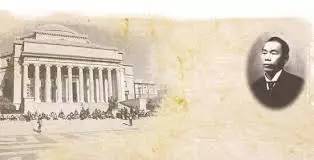
EAST ASIAN LANGUAGES AND CULTURES ● 原名 哥伦比亚大学汉学系 ■ Department History “I send you herewith a deposit check for $12,000 as a contribution to the fund for Chinese Learning in your university.” This letter, signed by “Dean Lung, a Chinese person”, was written to Columbia President Seth Low by the valet of University Trustee General Horace Walpole Carpentier in 1901. Dean Lung’s remarkable generosity prompted Carpentier to give additional donations totaling $200,000 in honor of his friend and employee for the endowment of Chinese studies at the University. Thus was founded what would become the Department of East Asian Languages and Cultures. In 1902 the University appointed its first professor of Chinese, Friedrich Hirth, previously of the University of Munich. Hirth began with the intention of using his own books to support the study of China at Columbia, but in the same year the University received a substantial donation of books from the government of imperial China, founding the University’s Chinese book collection, which would form the basis of what is now the C.V. Starr East Asian Library. Later holders of the founding Dean Lung Professorship have included L. Carrington Goodrich, Hans Bielenstein, and its current occupant Madeleine Zelin. Dr. Ryusaku Tsunoda, by permission of Waseda U. Library Dr. Ryusaku Tsunoda, by permission of Waseda U. Library Students from Asia had been coming to study at Columbia since the late 1800s. In the early decades of the twentieth century, a number of them, including Chinese intellectual leader Hu Shih, were attracted to Columbia by the philosopher and educator John Dewey. Ryusaku Tsunoda, who first arrived on campus in 1917 as a student of Dewey, stayed on to become the founder of Japanese studies in the Department. In 1929 the University appointed Tsunoda the curator of the new Japanese library collection contributed by the Japanese Imperial Household and Baron Iwasaki of Mitsubishi. In his classes on Japanese literature and cultural history, Tsunoda inspired many of the founding generation of Asia scholars, including Columbia’s Wm. Theodore de Bary and Donald Keene. With the expansion of the Department to include Japan, in 1938 its name was changed to Department of Chinese and Japanese. The beginning of Columbia’s tradition of scholarly excellence in East Asian studies thus coincided with the earliest years of Asian studies in the United States. Well before the Second World War spurred an expanded interest in Asia, the Department established Columbia as one of the few American universities teaching Asian languages, history, literature, religion, and politics. To address the lack of English sources for undergraduate courses on East Asia, in the 1950s Wm. Theodore de Bary, together with Burton Watson and Donald Keene, launched an ambitious project to translate Asian texts. The resulting series – beginning with Sources of Japanese Tradition, Sources of Chinese Tradition, and Sources of Indian Tradition – now consists of over 150 titles produced by the University Committee on Asia and the Middle East and Columbia University Press since 1958 and is a crucial foundation for the Department’s undergraduate courses in particular. Korean studies, which began at Columbia with a book collection and language instruction during the 1930s, was formally included in 1962 in the renamed Department of East Asian Languages and Cultures. Gari Ledyard taught Korean history from 1964 to 2000, overseeing a remarkable expansion in Korean studies. In 1959 Columbia was named a national center under the new National Defense Education Act. In the more than four decades since then, the U.S. Department of Education has continuously supported East Asian studies at Columbia with substantial annual grants for faculty salaries, student fellowships, and public outreach. In 2003 a generous grant from the Luce Foundation endowed a new chair in Modern Tibetan Studies in the Department and helped to underwrite Tibetan language study here as well; Columbia has recently used its own funds to put the Tibetan language program on a fully-funded basis, and the Department is thus now one of very few East Asian departments in the country to include Tibetan studies. With new positions established over the last several years or now in process in early Japan, early Chinese history and archaeology, modern Korean literature, Chinese, Japanese, and Korean religions, Chinese and Japanese film, and with plans for future positions in Vietnamese culture and language among others, the Department is growing, and making a serious effort to shape the field of East Asian studies nationally, in important new directions. Donald Keene, Shincho Professor Emeritus, giving talk on Ishikawa Takuboku at the DKC, spring 2014 (1) Donald Keene, Shincho Professor Emeritus, giving talk on Ishikawa Takuboku at the DKC, spring 2014 (1). During the 1980s, 1990s, and early 2000s, undergraduate interest in Asia rose sharply, while the Department’s graduate programs have produced successive new generations of Asia scholars. With an illustrious professorial faculty now standing at twenty-six members and a nationally leading language faculty of more than twenty lecturers; with a placement rate of nearly one hundred per cent in academic jobs for its PhD graduates in the last decade or more: and with both its undergraduate and MA students going on either to further academic study or to significant non-academic positions in the East Asia field, the Department is a leading participant in the unprecedented flourishing of East Asian studies in the new century, when the study of this part of the world has become integral to undergraduate general education and part of the disciplinary mainstream of the humanities and social sciences. More than a century after the founding gift in Chinese, the Department and the University boast a faculty, library, and record of educational innovation and service to East Asian studies undreamed of in the days of the generous valet Dean Lung. EAST ASIAN LANGUAGES AND CULTURES 407 Kent Hall 1140 Amsterdam Ave. MC 3907 New York, NY 10027 tel:212.854.5027 fax:212.678.8629 ■ copied from the original article

■空中撒网
●享受空中撒网的动态瞬间的美幻
■妳給我分享的丁龍的故事好感人,我特別喜歡。只是太忙了,沒辦法參加妳們的活動,讓我做一個為妳們鼓掌喝彩的鐵桿粉絲吧。
●你的美女大千金 , 是导演李安的学妹哦 !
■好莱坞,第一讲商业价值,李安拍这种可能性很小 。
●好高兴昨晚微信云里遇见你 !
盼望下个星期见面细谈 。
祝你工作快乐如意 !
我先关机休息一下眼睛吧~~
■■Open main menu Last edited 2 months ago by KasparBot Horace Carpentier EditWatch this page Horace Walpole Carpentier Born July 1824 Galway, New York, United States Died January 31, 1918 (aged 93) New York City, New York Alma mater Columbia College Horace Walpole Carpentier (1824–1918) was a lawyer and the first mayor of Oakland, California. He also served as president of the Overland Telegraph Company which oversaw the construction of the western portion of the first transcontinental telegraph in the United States.[1] LifeEdit Carpentier was born in Galway, New York in July 1824. He graduated Valedictorian with the Class of 1848 at Columbia College.[2] CaliforniaEdit Carpentier came to California during the Gold Rush, as he is listed as a passenger on the ship Panama in the New York Herald, February 6, 1849. In 1854, he was appointed "Major General" of the California State Militia. On May 4, 1852 Horace Carpentier persuaded the new California state legislature to incorporate Oakland as a town. Then, on May 17, he persuaded the new town's trustees to pass an ordinance "for the disposal of the waterfront belonging to the town of Oakland." That ordinance gave complete, lucrative control of Oakland's waterfront to Carpentier.[3] When this was discovered in 1855 after he had been elected Oakland's first mayor in 1854, he was ousted by an angry citizenry and replaced by Charles Campbell who became Mayor on March 5, 1855.[4] Carpentier presided over the California State Telegraph Company, before heading the Overland Telegraph Company. The Overland was formed in order to construct the western portion of the transcontinental telegraph.[5][6] On October 24, 1861, Carpentier sent the first telegram from the west to the east over the newly completed transcontinental telegraph line. The telegram was addressed to President Abraham Lincoln: "I announce to you that the telegraph to California has this day been completed. May it be a bond of perpetuity between the states of the Atlantic and those of the Pacific". Carpentier notoriously represented members of the Peralta family, the original Spanish land grant owners of the entire region now encompassing Oakland and Berkeley, in various legal proceedings ostensibly initiated to protect their holdings. The end result of these proceedings was that Carpentier himself received large chunks of what remained of their holdings as compensation for his services. Carpentier also acquired most of Rancho Laguna de los Palos Colorados,[7] and part of Rancho San Ramon. Return to New YorkEdit By 1888, Carpentier had moved back to New York City.[8][9] He had a second home in Galway in Saratoga County, New York. [10]He was elected to the Board of Trustees of Columbia University, his alma mater, in 1906, serving until his death.[11] He died at his home on January 31, 1918.[12] Family lifeEdit Carpentier remained single his entire life, although he seems to have shared a household with his cousin Harriet for many years in Oakland. (Several references mention Harriet as his niece, but the 1880 US Census for Oakland and the 1900 Census for New York show "sister", although in fact she was a second cousin). Their brother Edward also lived with them for a time. The Carpentier home was located in the oldest section of Oakland at Alice and Third Streets.[13] Alice Street was named for his other sister. Carpentier had another brother, James S. Carpentier, in whose name he made a donation to Columbia University. He made another donation in the name of his mother, Henrietta Carpentier [1], and another in the name of his brother Edward. References Wikipedia®® MobileDesktop Content is available under CC BY-SA 3.0 unless otherwise noted. Terms of UsePrivacy ■■
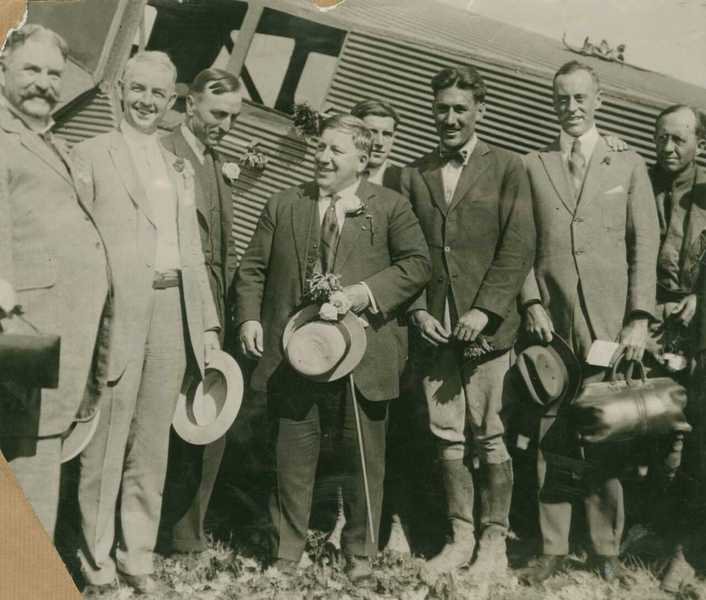
■■贺拉斯·卡本蒂埃Horace Walpole Carpentier(1824-1918),美国人,加利福尼亚奥克兰市和哥伦比亚大学汉学系的建立者。他和仆人丁龙的故事感动了很多中国人。 中文名:贺拉斯·卡本蒂埃 外文名:Horace Walpole Carpentier 出生地: 纽约 出生日期:1824年7月7日 逝世日期:1918年1月31日 职业:律师 毕业院校:哥伦比亚大学 主要成就:建立奥克兰市和哥伦比亚大学汉学系 分享 人物简介 卡朋蒂埃 卡朋蒂埃,1824年7月7日生于纽约北部的一个小镇,1850年毕业于哥伦比亚大学,是名律师。1849年加州发现金矿,他加入了淘金大流中,淘得第一桶金,后来创办加州银行,成为该行总裁。他在一片处女地上兴建了一座全新的城市,取名奥克兰,自任市长。相继建造了学校、码头、防波堤、船坞等。后来,他把土地交给了中太平洋铁路公司,他拥有该公司大量股票。因为在加利福尼亚州的国民自卫队服务,他也被称为“将军”。1889年卡朋蒂埃赚足了银子就离开了加州,来着丁龙管家来到纽约,在纽约东37大街108号安家。 卡朋蒂埃和丁龙 卡氏脾气暴躁,终生未婚,但对丁龙则另眼相待,1900年丁龙已经是卡氏的一个伙伴(companion)了,而十年则只是他的“华人帮佣”(Chinses help),这其中发生了一则动人的故事。 有一次,卡朋蒂埃酒后失态把所有的仆人都打跑了,还对丁龙大发雷霆,并当场解雇了他。第二天清晨,清醒后的卡氏环顾空荡荡的房子十分懊丧。这时丁龙一如既往地端着盘子给他送来早餐。卡朋蒂埃愧疚不已,他郑重其事地向丁龙道歉,并保证要改掉自己的坏脾气。他问丁龙为何没有走?丁龙回答说:“虽然你的脾气确实很坏,但我认为你毕竟是个好人。另外,根据孔子的教诲,我也不能突然离开你。孔子说一旦跟随某个人就应该对他尽到责任,所以我没有走。”忠实的丁龙就这么一直留在卡氏身边。有感于丁龙的忠诚,有一次,卡氏问丁龙,对于他这么多年忠心耿耿的服侍,想得到什么回报。丁龙的回答出人意料:希望在美国最好的大学之一哥伦比亚大学建立汉学系,让美国人能更多了解中国和中国的文明。1901年6月,卡朋蒂埃向他的母校哥伦比亚大学校长塞斯·洛(Seth Low1850~1916)捐了10万美元,并致信:“五十多年来,我是从喝威士忌和抽烟草的帐单里一点一点省出钱来的。这笔钱随信附上。我以诚悦之心献给您筹建一座中国语言、文学、宗教和法律的系,并请您以‘丁龙汉学讲座教授’为之命名。这个捐赠是无条件的,惟一的条件是不必提及我的名字。但是我要保持今后追加赠款的权力。”同时丁龙也捐赠了自己的积蓄,他在纸条上写道:“先生,我在此寄上12000美元的支票,作为贵校汉学研究的资助--丁龙,一个中国人。”卡氏在给塞斯·洛的信上高度称赞了丁龙有人品:“虽然他是个异教徒,但却是一个正直、温和、谨慎、勇敢和友善的人。” 为了实现自己仆人的这个愿望,卡本蒂埃多次同哥伦比亚大学的两任校长斡旋,自己又陆续捐款将近50万美元,甚至捐献出了自己在纽约的住房;建成哥伦比亚大学东亚系之日,他本人也被拖累至濒临破产,只得搬回纽约上州乡村的老家度过余生。这场持续多年的捐献史无前例甚至堪称悲壮。事情还没有这样简单。即使有了富翁和杰出校友、校董的出面支持并追加补足了建系的全部花销,当年哥伦比亚大学校方还是不愿意以丁龙这样一个无名之辈来命名和设立一个系科。他们曾经想用当时清朝总理大臣李鸿章的名义(李当时刚刚访问过纽约,在纽约家喻户晓);也想过用当时清朝驻美大使伍廷芳的名义来命名这个系;后来,慈禧太后得悉消息后,捐赠了《钦定古今图书集成》等五千多卷善本书,学校又想用中国皇家的名义来命名。令人钦佩的是,卡本蒂埃始终坚持用仆人丁龙来命名这个系科,否则他就撤资。哥伦比亚大学校长妥协了,于是,到今天为止,我们还能记着这位华工的名字。 ■■
